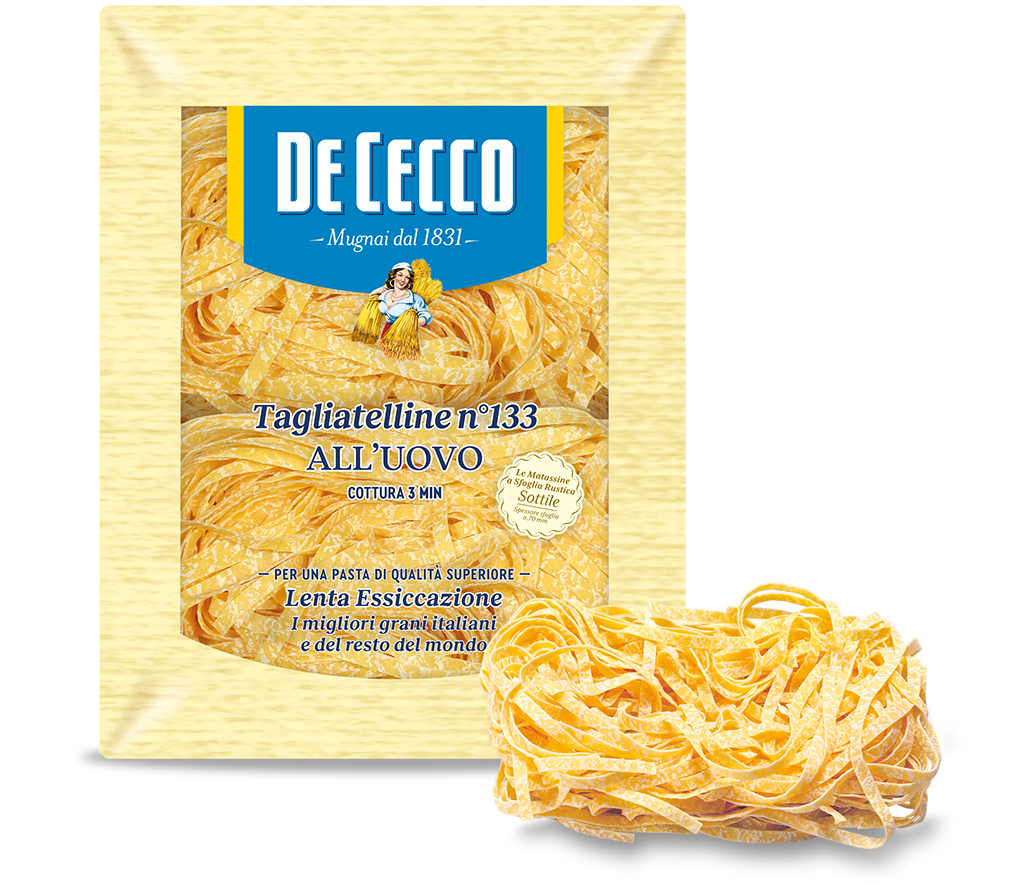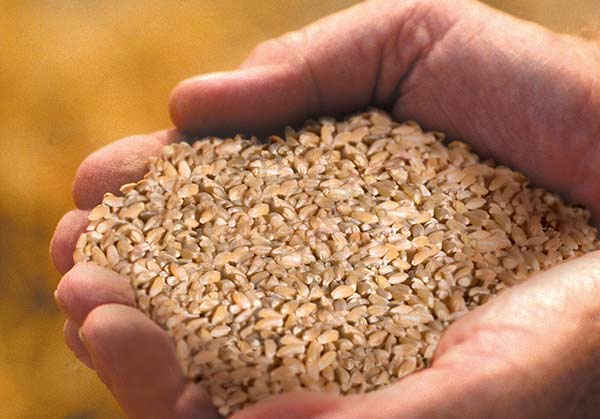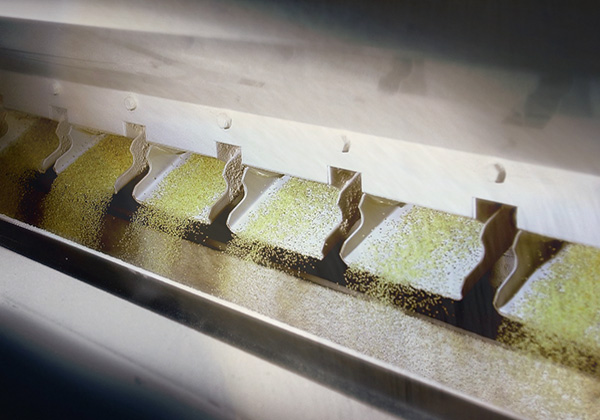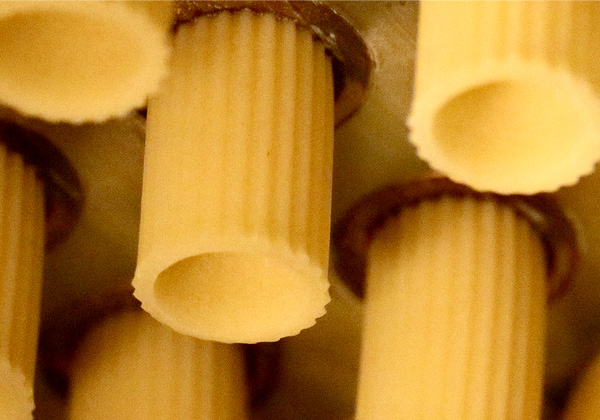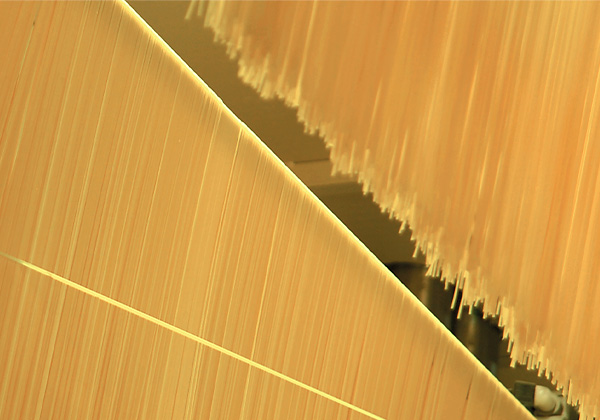Tonnarelli n° 312 all'uovo
In Lazio, the name Tonnarelli is used for the local version of Maccheroni alla Chitarra from the Abruzzo region.
Traditionally, this pasta was made using a "guitar": a tool made from strings stretched across a frame used to cut the sheet of pasta into different lengths of spaghetti with a square cross section.
The most popular recipe for this type of pasta is cacio cheese and pepper or "la gricia" which are classic dishes from the area around Rome.
Available in 250g packs
- Cooking time: 15 min - Al dente: 13 min
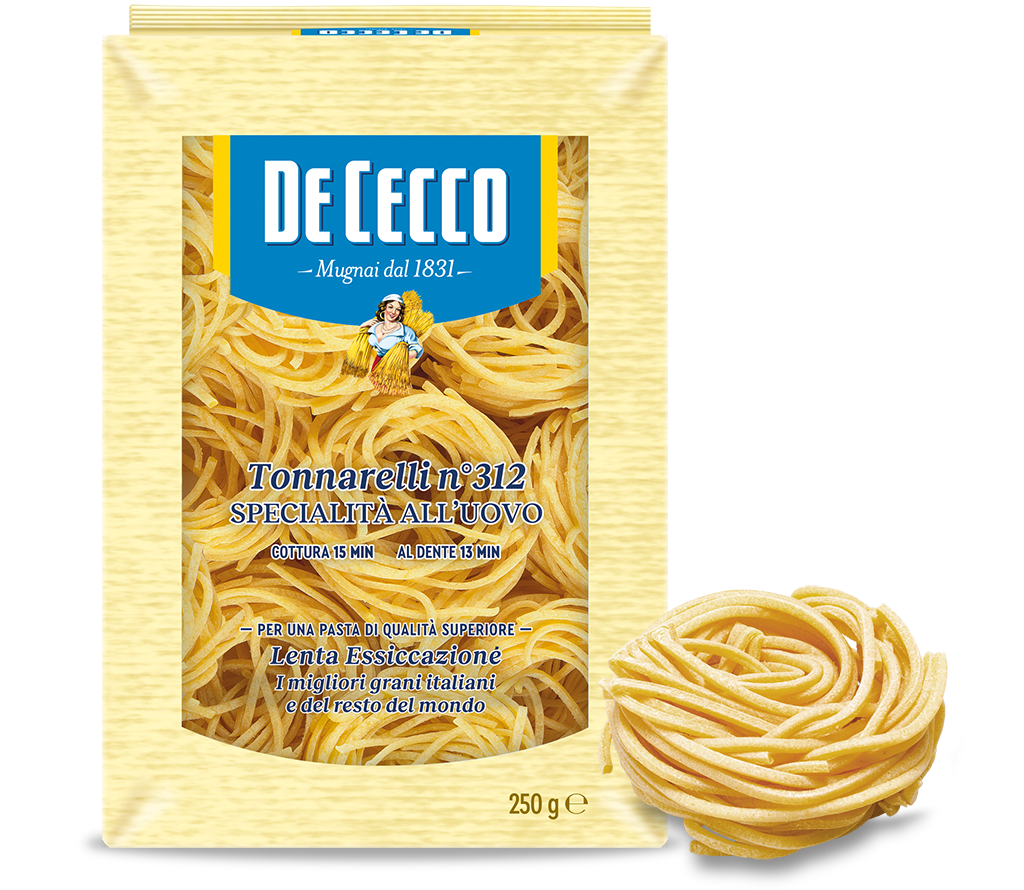
play
Our method
Attention, care, experience, quality at every stage: from our mill to your table.
You may also be interested in
Tagliatelline n° 133 all'uovo
Tagliatelline, which originate from Liguria, are consumed all over Italy and are part of the long, flat pasta family.
You need to go a long way back to retrace the origins of Tagliatelline and beyond the confines of Italy. Tagliatelline were known as early as 700 BC in Japan where they were imported from China with many other cultural and religious elements. In Japan, they were called Udon, tagliatelline made from common wheat, and seem to have met with incredible success in the province of Osaka and in the southern part of the country in general.
Tagliatelline are just the right size to be served both with sauces and in broth. In the first case, the recommended condiments are those from Ligurian tradition, so with pesto as the undisputed winner, and fish and shellfish based sauces coming a close second. They are also excellent in vegetable or meat broths or, with a nod to Oriental traditions, in broths based on seaweed and mushrooms.
Available in 250g packs
Find out more
